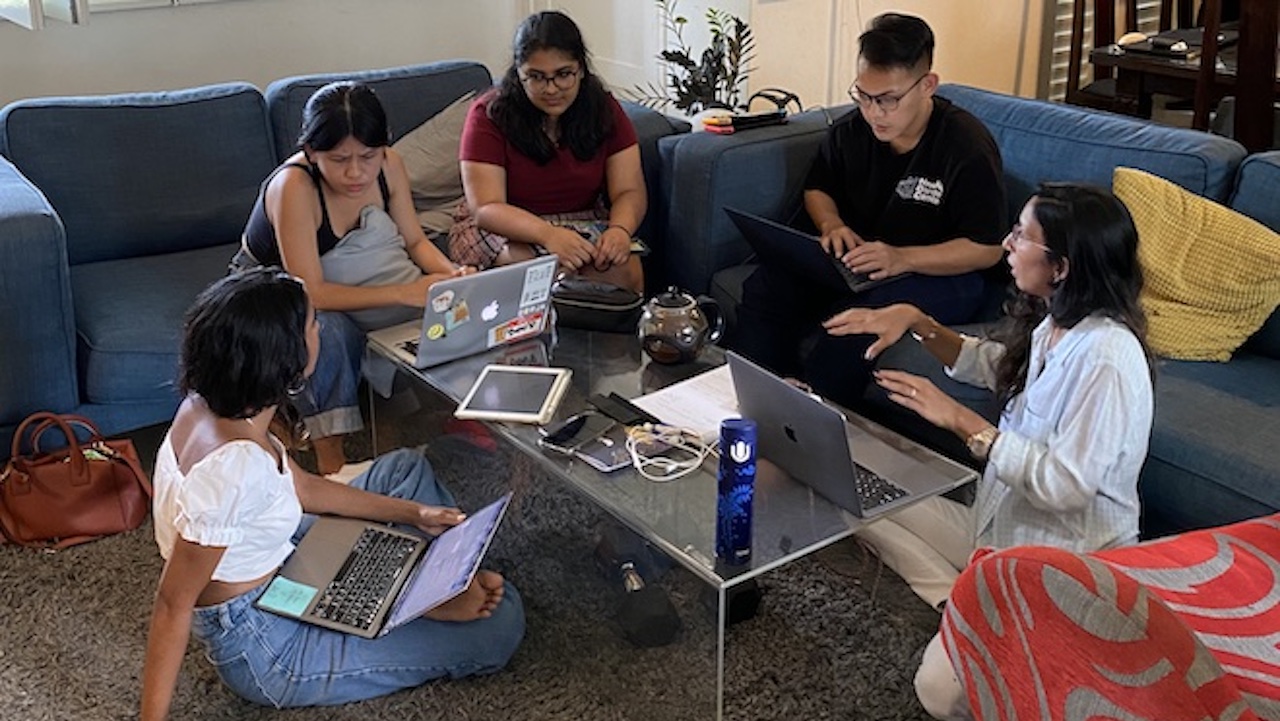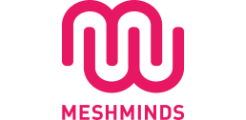5 Ways Companies Can Become More Sustainable

Chief Connecting Officer, MeshMinds

MeshMinds has found that asking employees to come in just 2 days a week ensures new ideas are discussed face to face while allowing its people to save on transport costs. Photo credit: Courtesy of MeshMinds.
Encouraging staff to eat more sustainably, switching to LED lights, and using more environment-friendly printers can help companies be greener.
This article is published in collaboration with MeshMinds.
As society eases toward what is hopefully the tail-end of the health crisis, employees prepare to head back to the office. Microsoft's 2021 Work Trend Index reveals that 62% of business leaders in Singapore are redesigning the office space for hybrid work.
At MeshMinds, we see hybrid work as a way to embed sustainability into our business practices. As a company that brings together the best minds in the art and technology worlds to form partnerships and collaborations with organizations like the United Nations Environment Programme to tackle the world’s toughest social, environmental and educational challenges, including climate change, sustainability is in our DNA.
Here are five ways we have incorporated sustainability into our business practices in the era of hybrid work:
1. You can't look after the planet if you haven't looked after yourself.
After a period of extended languishing, many people are still feeling somewhat shell-shocked from the COVID-19 pandemic. Slow down for a while, breathe and observe your own well-being. It is difficult for you to take effective climate actions when your mind and body are in a troubled state.
At MeshMinds, we have split the day into “Manager Mornings” and “Maker Afternoons.” We start the day off right by bringing project teams together to bounce ideas off each other and get on the same page. This allows our creatives to have largely uninterrupted afternoons so that they can dive into their creative technology work with minimal distractions, but always with flexibility. This flexibility is key for a sustainable work environment. It can allow team members to take care of themselves and create a better work-life balance (for example, blocking time to go to the gym or spending time with their children) without compromising the quality of their work. Our culture is that as long as timelines are met and work is done well—people can be trusted to manage their own time.
To help team members stay mentally refreshed and physically active during the day, MeshMinds has invested in a portable laptop stand to raise the height of everyone's computers so that they can avoid sitting for such long periods during days sometimes filled by seemingly endless streams of back-to-back video calls.
We also set up a "Well-being and Team Care" virtual space so that team members can share tips to maintain physical and mental well-being. During the lockdown, we shared tips that helped us handle stress or work out at home. We also shared articles that help us to deal with any climate anxiety that we may be feeling in the face of increasingly worrying news reports on the state of the planet. We ensure that we make time to listen to our team members, empathize with their greatest concerns, communicate frequently and confidently, and be flexible and supportive to meet their needs.
2. Eat the rainbow.
According to research, making your work lunch as colorful as you can by eating a diet rich with vegetables and fruits will give your body a mix of nutrients that you need to keep your mind and body energetic for work.
At MeshMinds, we have a vegetarian lunch provided in the office twice a week to ensure our team is well-fed.
One of our junior team members even tried cauliflower for the first time recently. Sharing recipes and encouraging our team members to eat the rainbow keeps them healthy and ready to focus their energy on designing projects and programs to support the sustainable development of people and the planet.
Eating more fruits and vegetables instead of meat is also good for the environment. UN experts said a plant-based diet can help fight climate change as raising livestock contributes to global warming through the methane gas the animals produce.
3. Conserve energy; bring nature indoors.
Conserving energy is more than switching off the lights when a room is not in use. You may want to consider what kind of light bulbs you are using. If you haven’t yet, consider switching to energy-efficient lights, such as LED lights, in your office and at home. On the flipside, consider this: during the daytime, do you actually need the lights on?
MeshMinds is blessed to be located in sunny Singapore and can rely on natural daylight for our work environment. According to the Future Workplace Employee Experience study, 78% of employees believe that natural lighting improves their well-being and 70% feel it has improved their work productivity.
If you are in Southeast Asia, you would have undoubtedly experienced the intense heat in the region, but ask yourself, is the air conditioner absolutely necessary? If the air conditioner is a must, save energy and money by turning up the temperature. According to Singapore's National Environment Agency, the ideal temperature would be 25ºC or above. Choose energy-efficient methods to power your office by checking the energy labels; the more ticks the better.
Enjoy a low-cost method of creating a healthier environment—air-purifying plants. Try placing a houseplant like a peace lily, a corn plant, or a fern arum on your work desk. According to research reported by the World Economic Forum, having five plants indoors can decrease air pollution by 20%.
4. Think before you print.
Ask yourself if there are alternative approaches for your project that would help to reduce the use of paper. If you must print, think about the longevity of your prints. Can you re-use these materials again in the future?
At MeshMinds, we use printers that are certified by the Forest Stewardship Council, which sets standards for responsible forest management and certifies paper or wood products used by a company come from sustainable sources.
We also consider how to effectively produce our deliverables with the least or, if possible, no wastage.
Consider going paperless and your company can save time and money while helping to save the environment.
5. Cut your transport footprint.
Reduced commuting when working from home will yield environmental benefits. Consider carefully how many days you require your team to travel to the office and encourage your employees to take public transport whenever they can.
At MeshMinds we surveyed our team and found that coming together face to face 2 days a week and being strategic about how we use those days works best. On Mondays, we make sure we have lots of chances to discuss key deliverables and any challenges facing the production of those deliverables. We reserve Wednesdays for innovation days where we allow our creatives to sit together and throw ideas around for new concepts.
We find innovation has become stifled over video calls due to people not knowing when to give quieter or shier members of the team a chance to speak. Ensuring that new ideas are discussed face to face boosts our ability to keep innovating even when we are not together.
We hope some of the sustainable business practices at MeshMinds resonate with you. Consider how you can promote environmentally conscious lifestyles among your team members whether they are working from home or in the office.

Kay Poh Gek Vasey
Chief Connecting Officer, MeshMindsKay Poh Gek Vasey is the chief connecting officer at MeshMinds, which operates as a creative technology studio. Vasey offers expertise and advocacy on XR creation and production, metaverse pedagogy, digital sustainability, digital transformation, and the future of art and creativity. She believes in the power of artists to inform conversations and inspire positive actions that result in measurable impact for a better world. She is also founder of MeshMinds Foundation.

MeshMinds
MeshMinds is a nonprofit foundation and creative technology studio that invests in games for good. We connect impact artists, tech for good developers, and sustainability advocates. Together, we build immersive and interactive experiences that encourage digital youth to learn through play and effect real-world impact that supports the sustainable development of people and our planet.

